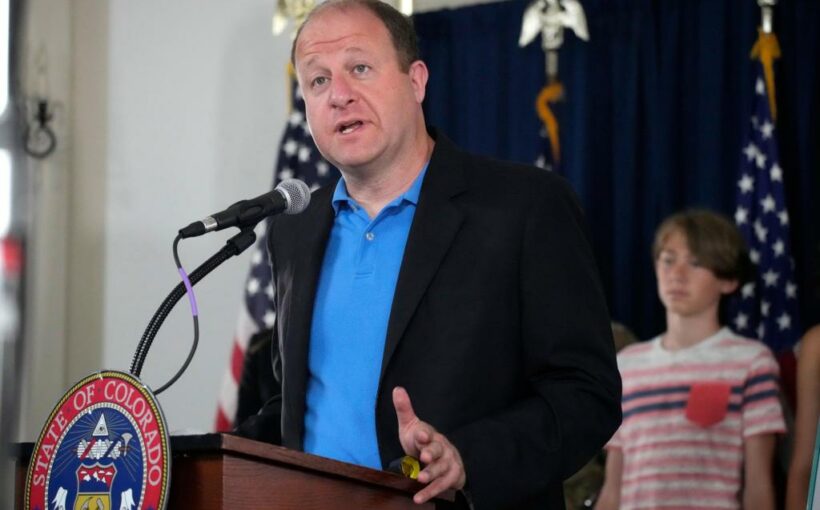Gov. Jared Polis issued an executive order on Sunday, streamlining discipline or firing of state employees who don’t comply with vaccine requirements. He also ended the last remaining executive order offering renters partial protection from eviction, and directed state agencies to share more data about K-12 student exposure to COVID-19.
State employee discipline
Polis temporarily suspended a section of rules concerning the discipline of state personnel, meant to speed up firing of people found to be out of compliance with the state’s order Sept. 30 order to get at least the first dose of a vaccination if you’re a Colorado government employee who interacts with vulnerable populations or populations living in congregate living settings like health facilities and prisons.
He deleted a state rule requiring written notice seven days in advance of a “pre-disciplinary meeting” for a state employee out of compliance with vaccination requirements. The state can now go straight to the disciplinary phase, providing written notice of potential disciplinary action without having to hold a meeting first. A state employee has 10 days to respond in writing to notice of this potential action, and can be fired immediately if they do not respond after that timeframe.
He wrote in his order: “The existing process would prevent, hinder, or delay the State in addressing noncompliance by State employees. State employees’ noncompliance with existing COVID-19 vaccination and/or testing requirements threatens the State’s ability to adequately respond to and recover from the ongoing pandemic and endangers the health of fellow State workers, members of the public who interact with the State, members of vulnerable populations and populations in congregate living settings, and the general public.”
Student data
The governor’s order also directs the Colorado Department of Education to share with the Colorado Department of Public Health and Environment K-12 student information Polis said is “necessary for public health purposes of ongoing COVID-19 investigation and disease mitigation.” That information includes the name of a student’s school and “sufficient information about students to match their information to records in CDPHE immunization and disease
control databases.”
The governor’s office has not yet responded to a question from The Denver Post about what “sufficient information” means.
“The pandemic remains an ongoing threat to our youth,” Polis wrote in his order, “especially those not yet eligible for the vaccine, and this data sharing will enable public health authorities to promptly identify the school of attendance of a suspected or confirmed COVID-19 case and will assist with swift contact tracing and disease mitigation measures.”
Polis has declined to issue a statewide mask mandate for schools, where in August and September the state documented nearly 200 outbreaks. The state has struggled to convince schools and students to participate in its weekly testing program.
Tenant protections
Coloradans struggling to make rent no longer have special protections during the pandemic.
When the federal eviction moratorium was struck down at the U.S. Supreme Court in August, the last remaining temporary protection in Colorado was a Polis order requiring that anyone with a pending application for state rental assistance be shielded from eviction if they resolve their nonpayment with 30 days — up from the typical 10-day window.
Polis did not explain why he rescinded that particular order, but for months he has said he wants to phase out as many pandemic orders as he can.
“Thanks to the efforts of all Coloradans, the moment for extraordinary executive action has passed,” he wrote in the latest order.
While the pandemic-ordered tenant protections are now all gone, renters are now protected from excessive late fees and evictions in certain cases because a state law passed earlier this year went into effect Oct. 1. Those protections are permanent.
Source: Read Full Article
